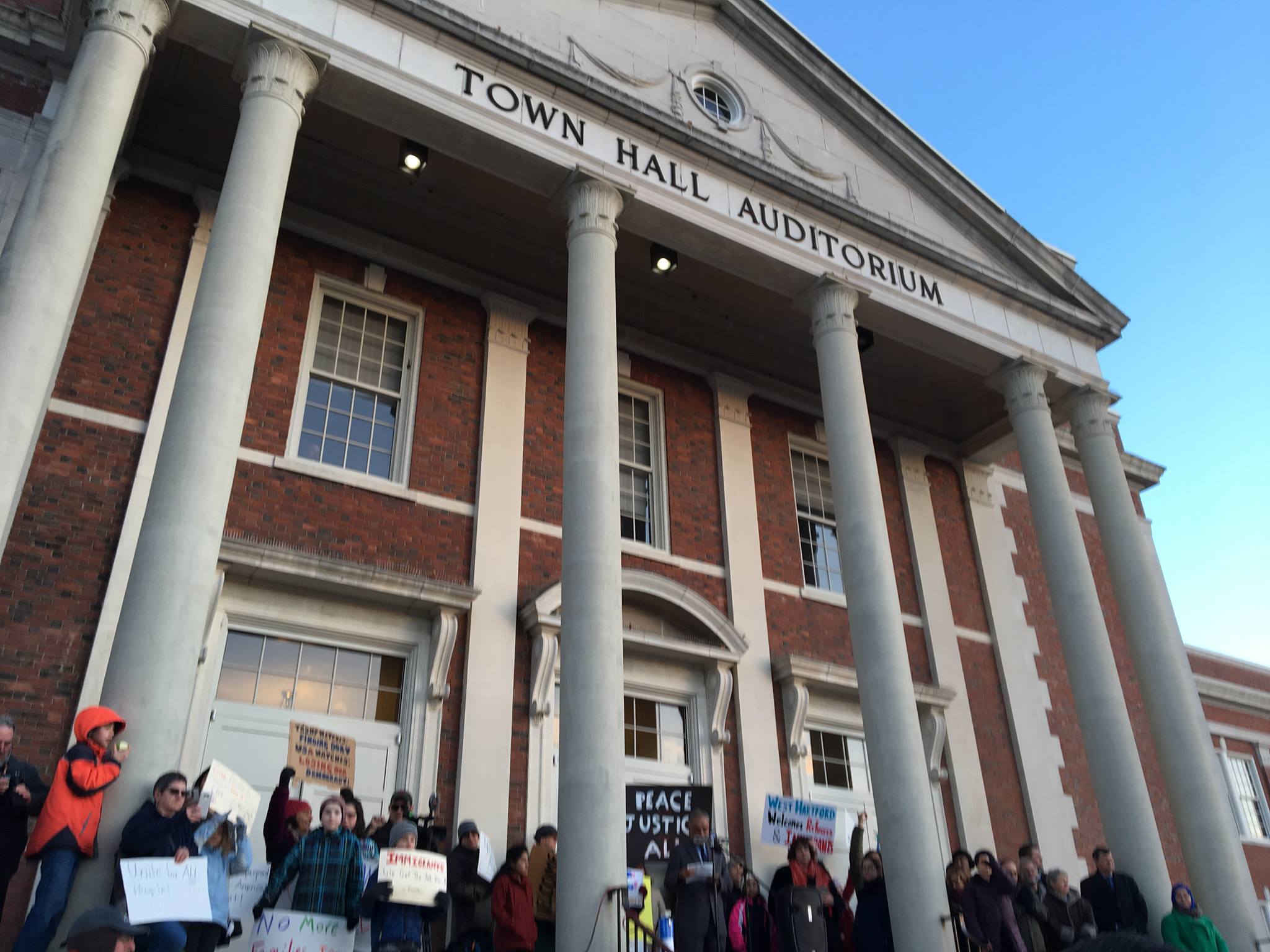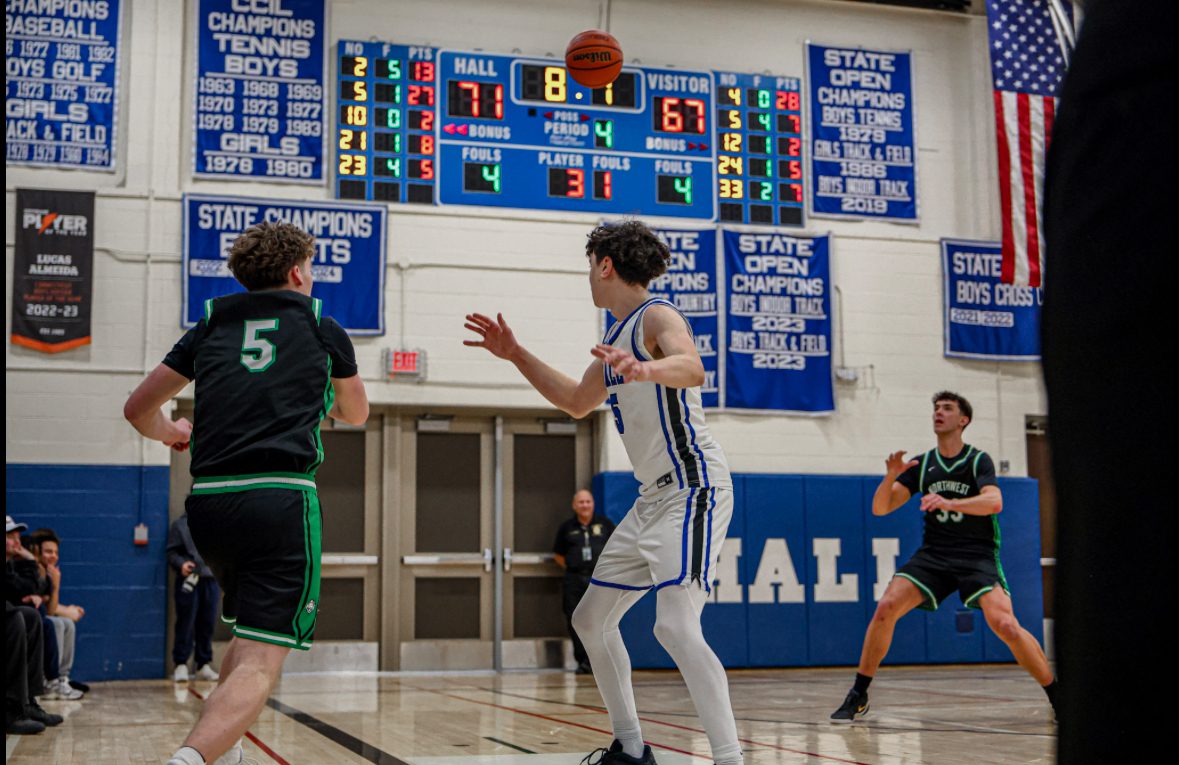Non-Profits to Offer Community Conversation on Race, Religion, and Response in West Hartford

Audio By Carbonatix

Courtesy photo
The Noah Webster House & West Hartford Historical Society will team up with Connecticut Humanities for the two-part Community Conversations” Race, Religion, and Response at West Hartford Town Hall.
Submitted
Race, Religion and Response – what’s at issue in West Hartford?
The Noah Webster House & West Hartford Historical Society (NWH&WHHS) and Connecticut Humanities (CTH) will offer a special two-part community forum to look at the history of different races and religions in our community and how we can respond to the issues facing this diversity today.
The first part of the conversation, “The Roots of our Relationships,” will be at 6 p.m.on Wednesday, May 3, 2017. The second part, “Reflect and Respond,” will be at 6 p.m. on Wednesday, May 10, 2017. Both sessions will be held at West Hartford Town Hall Auditorium and are free and open to the public.
West Hartford is one of the most diverse towns in our state in terms of race, religion, income and age. Along with the World Affairs Council of Connecticut and Connecticut Humanities, the Noah Webster House & West Hartford historical Society will run an evening forum to examine the historic and contemporary forces that shape the relationships within and among various religious and ethnic communities within the town and Greater Hartford area. The programs will feature moderated panel discussions among scholars, civic organizations and community members.
The first discussion, “The Roots of our Relationships,” on May 3 will offer historical and global context. Award-winning Historian Mary M. Donohue will provide the local historical perspective on racial and ethnic groups and immigrants. Rev. Dr. Terry Schmitt, Executive Director of the Connecticut Council for Interreligious Understanding, will speak to the history and patterns of religious groups in our community and around the state. Finally, Megan Torey, Executive Director of the World Affairs Council of Connecticut, will give the global context and conditions for immigration as well as an overview of the process faced by successive groups of immigrants.
The follow-up discussion, “Reflect and Respond,” on May 10 will examine current issues threatening our community’s ethnic and religious diversity and steps citizens can take to get involved and make a difference. Panelists will include Mark Overmyer-Velazquez and Jeremy Pressman, University of Connecticut professors and rally co-organizers, and Victoria Christgau, Founder and Executive Director of the Connecticut Center for Nonviolence.
The “Race, Religion & Response” series will be moderated by Janet Bauer, anthropologist and Associate Professor of International Studies at Trinity College. Dr. Bauer teaches and publishes on comparative immigrant and refugee resettlement issues, particularly the role of women in transforming communities in Muslim diasporas. Her current ethnographic work with newcomers in Hartford examines how faith-based and other nonprofit organizations contribute to building immigrant social capital and furthering incorporation. This semester her Hartford Global Migration lab students have established a pilot refugee youth mentoring program at Trinity College to work with the refugee children. She serves on Hartford’s recently created Commission for Refugees and Immigrant Affairs.
The “Race, Religion & Response” Conversations: A Community Forum series will take place in the West Hartford Town Hall Auditorium, 50 South Main St., West Hartford, CT 06107. Ample parking is available in the Town Hall lot. Both sessions are free and open to the public. Reservations are recommended. To register for the May 3 and/or May 10 event, visit Eventbrite.com or call (860) 937-6528.
This program is brought to you by Connecticut Humanities. Connecticut Humanities, a nonprofit affiliate of the National Endowment for the Humanities, supports cultural and historic organizations that tell the state’s stories, build community and enrich lives. CTH has planned a series of programs called “At Issue” that will provide opportunities for audiences across the state to discuss contemporary issues in their local communities. This special, state-wide year of programming is funded by a grant from the National Endowment for the Humanities.
The museum would also like to thank the Hartford Foundation for Public Giving and the Greater Hartford Arts Council for their continued support.



